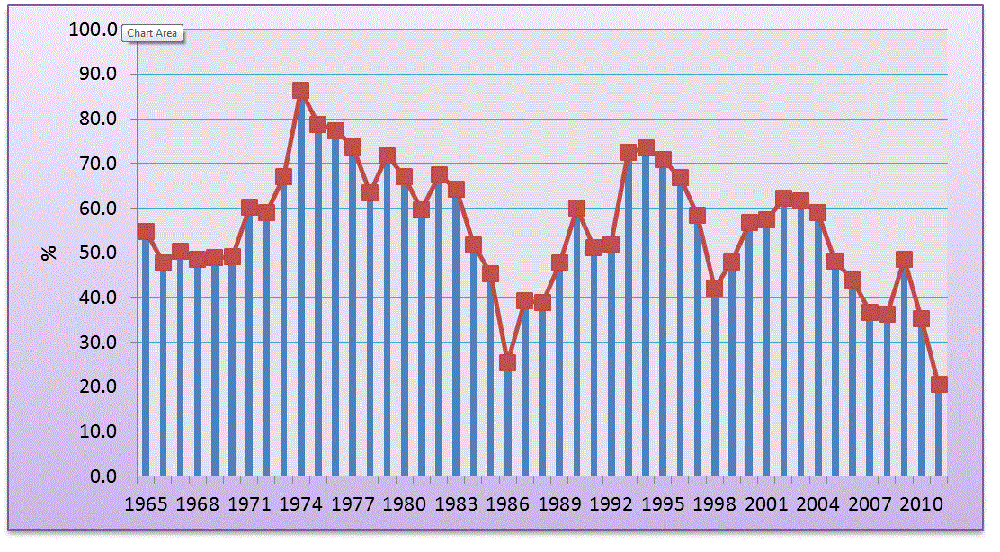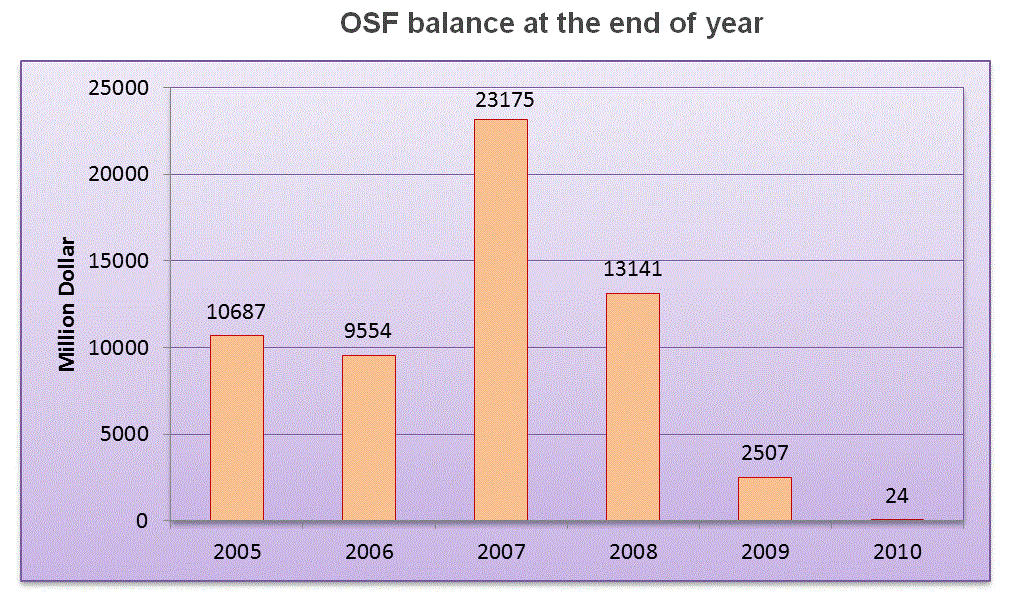The background of the National Development Fund of Iran
Generally speaking resource curse or Dutch Disease has already affected Iranian economy through formation of rent seeking governments and mismanagement of the resources. Although abundant oil and gas resources contributed to development of many sectors in recent decades still an unbalanced development of economic sectors and uneven economic growth in provinces in Iran rethinking the effective role of revenue from natural resources.
A glance at the government budget delineates that dependency on oil revenues has not experienced any diversion and stability.
Share of oil and gas incomes in Iran’s Budget (1965-2011)
 Source: Central bank of Iran, www.cbi.ir
Source: Central bank of Iran, www.cbi.ir
There is no doubt that a steady and balanced inflow of revenues from natural resources can better regulate a sound and sustainable development. Gradual shift of economy from oil dependency towards economic diversification through market-oriented approaches and greater role of private sector in the economy was envisaged in the mindset of policy makers for a long period of time which finally concluded in formation of a stabilization fund in Iran.
The National Development Fund of Iran (NDFI) can be traced back to the Third Development Plan of Iran (2000) when a Foreign Currency Reserve Account (known as Oil Stabilization Fund) was established to stabilize the annual budget and prevent the oil prices fluctuations. The other objective of OSF was to save a portion of oil revenues for future generations through making productive investments.
 Source: Central bank of Iran, www.cbi.ir
Source: Central bank of Iran, www.cbi.ir
Hint: Persian Years end at 21st March.
Due to the failure of OSF, it was in the Fifth Development Plan (2011) that NDFI was formed to save the shares of future generations and transform a portion of oil revenues to productive investments, while the OSF remained in place only with the single task of keeping the annual budget balanced. Half of OSF balance at the end of each year is transferred to NDFI regularly. NDFI is mandated with transforming a portion of the revenues from export of oil, gas, gas condensates and oil products to sustainable wealth and productive investments, as well as saving the share of future generations from these resources. Based on the law, 23% of the hard currency revenues from the above mentioned sources go to NDFI in 2013. This share will reach to 32% by the end of 2016.